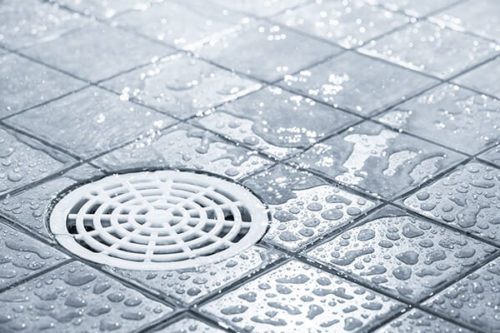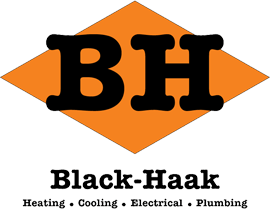
Your drains are essential parts of your home plumbing system. They collect wastewater from sinks, toilets, showers, tubs, washing machines, and dishwashers. If they become clogged or blocked, they can cause serious problems such as flooding, sewage backup, and even health hazards.
The most popular way to maintain the health of your plumbing system is to keep it clear of blockages. For instance, when you accumulate waste materials in your home’s sewer line, it can cause backups and other issues. It is critical to inspect your drains periodically and ensure that they work correctly to prevent these problems from occurring.
To help you with your plumbing maintenance, consider the following:
- If you notice a problem with your drain, first try to identify what type of clog is causing the difficulty. This will help you know how to best address the issue. After identifying which type of clog is blocking your drain, you need to determine the best way to remove the clog. You may also want to contact a professional plumber for assistance if you aren’t sure about what to do.
- A common problem with kitchen sinks and bathtub drains is grease, hair, and soap scum buildup. The easiest solution is to use a plunger to break through this buildup. Another option is to run hot soapy water down the drain until the debris clears.
- Toilet drains can get clogged by non-flushable items, an excess of toilet paper, and other objects. Remove any visible objects with a small scoop. Then, try plunging the clog down the toilet.
- Sewer drains usually clog due to tree roots or vegetation growing inside them. You can purchase a root kill product from any supermarket or hardware store to keep the tree roots from overtaking your sewer drain system.
- You would think that having a garbage disposal in your sink would make it easy to keep particles from going down your drains. However, because the blades tend to wear out quickly, you may find food particles accumulating in the drains causing a blockage. The best thing to do is to replace the blades every 12 months and clean the garbage disposal at least once a month.
Keeping your drains clear of any debris can help you avoid potential plumbing issues. However, if you start to experience problems, there are many things you can do to alleviate the issues such as purchasing DIY drain cleaning kits. You can also hire a professional plumber to inspect your plumbing and repair them for you.
When choosing to unclog your drains yourself, the following items may help.
Baking Soda
Baking soda is an effective natural deodorizer and drain cleaner. It works by absorbing smells in the air around it and neutralizing odors on surfaces. This chemical exfoliates the walls of your pipes and does an excellent job at unclogging your drains. All you must do is cut open a box of baking soda and pour it into your kitchen sink. Let the baking soda sit for a few minutes, and then pour water down the drain.
Borax
Borax is another all-natural solution for cleaning drains. It breaks down fats, oils, greasy particles, mildew, and bacteria.
Bleach
Bleach is an excellent household product for removing stains and cleaning drains. It’s available at most grocery stores and drugstores. Use one part bleach and three parts water to clean your drains.
Salt
Salt can be used to rinse away any debris stuck inside your drains. Just add some salt into the trap and let it sit there overnight. The next day, run hot tap water through it. The salt should help dissolve anything stuck in your drains.
Citrus Juices
Citrus juices are great for rinsing out drains because they contain citric acid. Because they are acidic, they work better than ordinary soap. Citrus juice, like lemon juice, has antibacterial properties and helps keep your drains free from harmful bacteria.
Hot Water
Hot water helps loosen up grease and other substances that get stuck inside your drains. Try boiling some water on the stove. Then, pour the boiling water down your sink drain. Repeat this process until the grease dissolves and the water flows freely down the drain.
Drain Scraper
A drain scraper is a tool used for removing obstructions from drains. Before using any drain clearing tool, make sure you read instructions carefully to find out if it’s safe for use on your type of plumbing fixture. Some tools are designed specifically to work on certain types of materials. For example, a snake-type device will not work as effectively on copper piping as a suction hose.
Wood Ashes
Wood ashes are a great homemade drain cleaner because they contain sodium hydroxide, which loosens dirt and grease. Take some wood chips and put them into a pot to make wood ash. Boil the wood chips over medium heat until they turn black. Once they turn black, strain the ashes, and store them in a container. You can use these ashes for cleaning both outside and indoor drains.
Dish Detergent
Many dish detergents have properties that can cut through grease and oily substances. You will need to pour 3 tablespoons of liquid dish detergent down the drain with some boiling water. Any grease or oily substance should dissolve quickly.
Cream of Tartar, Baking Soda, and Salt
Create a mixture of 1/8 cup of cream of tartar, 1/4 cup of salt, 1/4 cup of baking soda, and 16 fluid ounces of boiling water. Pour the mixture down the drain and let it sit for about 15 minutes. Then, flush completely with clean water. Repeat as necessary.
Vinegar
If you’ve ever tried to clean your drains by pouring liquid Drano down them, then you know how dangerous this solution can be. Instead, try pouring vinegar down your drains. Vinegar contains acetic acid, which dissolves grease and grime on contact. It also has disinfectant properties.
Barbed Stick
A barbed stick is a tool that can help remove any hair and debris from the pipes. The bristles at the end of the stick help pull out everything that gets lodged in the pipe. These sticks come in various sizes and shapes. Some people prefer the smaller ones, while others go for the bigger ones to remove more debris. Make sure the one you choose fits in your drain size.
Auger
An auger is a drill bit that can remove clogged material from the pipes. This tool looks much like a corkscrew. It can be attached to a hose and inserted into the drainpipe. An auger can be used to loosen up tough clogs that are deep inside the pipe.
Plunger
A plunger is a valuable household item that can be used for many purposes, such as unclogging sinks removing obstructions from toilets. A plunger comes in many varieties, including standard and specialty plungers designed for specific tasks.
Drain Protector
A drain protector is a device that fits into the drain. Usually made of plastic, this device can keep hair and other debris from going into the drain as a preventive measure. To clean, you simply remove it from the drain and wipe it off.
Seek Professional Help
Black-Haak provides heating, cooling, electrical, and plumbing services to the residents of Greenville, WI, and the surrounding areas. Our technicians are committed to providing excellent customer service and are available 24/7 to meet your needs. Contact Black-Haak today to schedule an appointment.

